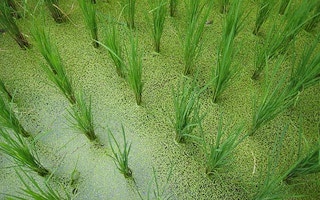Experts from the University of Oxford and Indian researchers are looking into the impact of climate change policies on India’s informal economy, and diagnosing ways of reducing CO2 emissions and improving jobs.
By and large, the global response to climate change has ignored informal economies. Yet, the larger part of India’s economy and almost all its jobs are informal and not directly affected by government policy, a university release said.
Field studies are expected to start in March or April to examine the environmental impact of a range of technologies for paddy-rice. Rice was chosen because of the research team’s familiarity with this sector, and not because it is regarded as a big polluter.
However, the researchers hope this pilot project will result in models that can be applied to other sectors of the informal economy and in countries other than India.
Researchers will also examine the number and type of jobs created in the production and distribution of rice. Fieldwork will centre on Orissa, Andhra Pradesh and Tamil Nadu.
The project seeks to compare the amounts of water, energy and carbon dioxide emissions used in the life cycle of rice. The researchers will compare these environmental measures, and the jobs created for those farming and distributing the rice.
The team will interview people working on both large and small rice farms and those involved in the distribution system, including local markets, supermarket supply chains and the government’s Public Distribution System.
It will look specifically at four different types of rice production: high-yielding varieties that use fertilisers and agricultural chemicals; rice intensification systems that use less water and less fertiliser; rice certified as organic; and rain-fed rice that is not certified as organic but uses few agro-chemicals.
The project co-ordinated from the University of Oxford will involve researchers from the Institute of Human Development, New Delhi; Madras School of Economics; Jawaharlal Nehru University and Jindal Global University.
Project leader Barbara Harriss-White, Professor of Development Studies and member of the Contemporary South Asian Studies Programme at the University of Oxford, said: “Informal economies have been largely ignored in the debates about climate change.”
“We hope to develop new models that can be used to investigate the environmental effects of production and distribution systems that operate in the informal economy outside the reach of state regulation. We will also look at the impact on jobs of technology that is more environmentally-friendly”.
The pilot project will run until June 2013.










